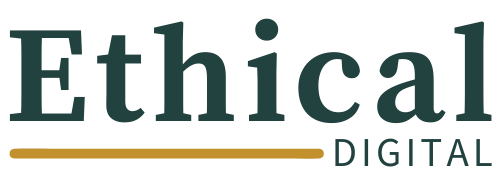Can Media Increase Social Capital?
Or is it keeping you from maintaining and creating relationships?
When you think of social capital, what do you think of? Does your mind wander to the popularity politics of high school, or a businessman climbing through the ranks due to his likeability? In reality, it tends to be a lot more simple than that… you’ll see!
What Is Media?
Media has an expansive definition. It includes any means of mass communication—the internet, broadcasting, television, and publishing. From traditional to new and digital, media can bring people together, connecting them with news, facts, discussion, and more. However, it can also isolate people from one another.
Who here has ever opted for a night on the couch with only the TV to keep you company? No shame or judgment in that! This is great once in a while—we all need some chill time. However, if your default is consistently engaging with the media instead of people, it can become a problem.
We consume media every day, whether we realize it or not—listening to the radio on our way to work, reading the ads that line the streets, watching a TV show to unwind, and logging onto social media to check for updates.
At its best, media is a connection point. It spreads information within society, engages people, and encourages participation. These connections improve one’s social capital.
What is Social Capital?
According to a 1980 study, social capital can be defined as ‘the resources inherent in more or less formalized relationships on the individual level.’ However, social capital is an important tool for connecting people on a national level too. It can be as simple as making a new friend at rec soccer, volunteering with your community, or even the friends you’ve made through the years.
Social capital can be divided into two categories:
Network capital refers to informal relationships with friends, neighbours, relatives, and coworkers. These relationships provide companionship, emotional support, and a sense of belonging.
Participatory capital includes associational relationships that allow opportunities for people to bond. These can come from work settings, recreational activities, community involvement, and more.
A team of researchers in Europe set out to find if media boosts or harms social capital, both collectively and individually.
Data from the European Social Survey measured individual-level social capital and media use. To understand national-level social capital, data was collected from various previous studies. These sources all provided specifics about internet use, media use, and social activity.
For the purposes of this study, media was divided into two forms: informational and entertainment. Informational media includes magazines, newspapers, radio, ads, and anything that spreads data and knowledge to the public. Entertainment media includes TV, movies, books, social media, and anything that’s purpose is to amuse.
How Does Media Affect Individuals’ Social Capital?
The researchers found that the media’s effects on social capital depended on the media’s content. For example, informational media increases political engagement and thus increases one’s participatory capital.
Studies found that entertainment media has complex effects on individual social capital. It decreases participatory social capital, as those who preferred entertainment media were less engaged with society. On the other hand, and to the surprise of the researchers, it increases network capital by supporting informal social networks. Entertainment media can bring people with common interests together—fandoms exist for a reason!
How Does Media Affect A Nation’s Social Capital?
National-level social capital is essentially a version of wealth. It can influence the effectiveness of government, lessen poverty, and create a healthier economy.
People benefit from the media when they live in countries where it’s encouraged. They tend to be more engaged in society, therefore upping their participatory capital. An open, free media system enables a discussion forum for societies, promoting community involvement.
Can Media Improve Social Capital?
Generally, yes. The research findings showed that media affects social capital on an individual and national level in a small yet significant way. It either gives people a reason to come together, or it can be the reason they stay isolated—it all depends on the content.
Because we know that the media can sometimes be harmful, we tend to jump to negative conclusions when thinking about it. Researchers who have looked into this before have often been clouded by the downsides, but this study found that the media generally isn’t harming us socially. Instead, this research urged that we look at media’s effects on social capital with distinction and care.
We consume media every single day, and it’s great to know that it’s not changing our ability to make friends and participate with our fellow humans. In fact, in some scenarios, it has the potential to foster social capital. When it comes to entertainment media, it has its place, but don’t let it keep you from the real world too often. As for informational media, keep consuming and participating in the conversation (just make sure you’re conscious of fake news and filter bubbles)!
Study Objective & Methods
Social capital in media societies: The impact of media use and media structures on social capital.
Sarah Geber, MA; Helmut Scherer, PhD; Dorothée Hefner, RA
Published in The International Communication Gazette, 2016.
The goal of this study was to understand the effects of media on social capital, considering both individual and national levels. Data from the European Social Survey was used to understand individual-level social capital. In total, including the various resources used to understand national-level social capital, data from 53.046 cases in 27 countries was used. The researchers used this data to form their conclusions.
Social Media and Well-Being Training
This research (and all our social media and well-being articles) have laid the foundation for our 3-course program designed for anyone wanting to approach social media and communications in a way that protects well-being and puts people first. Learn more here.




